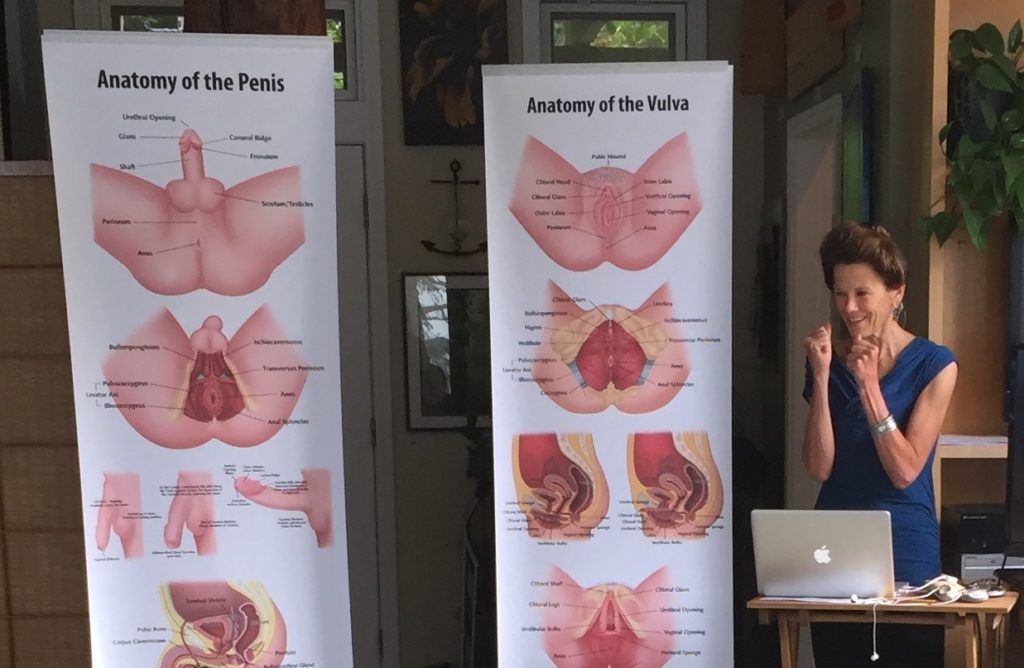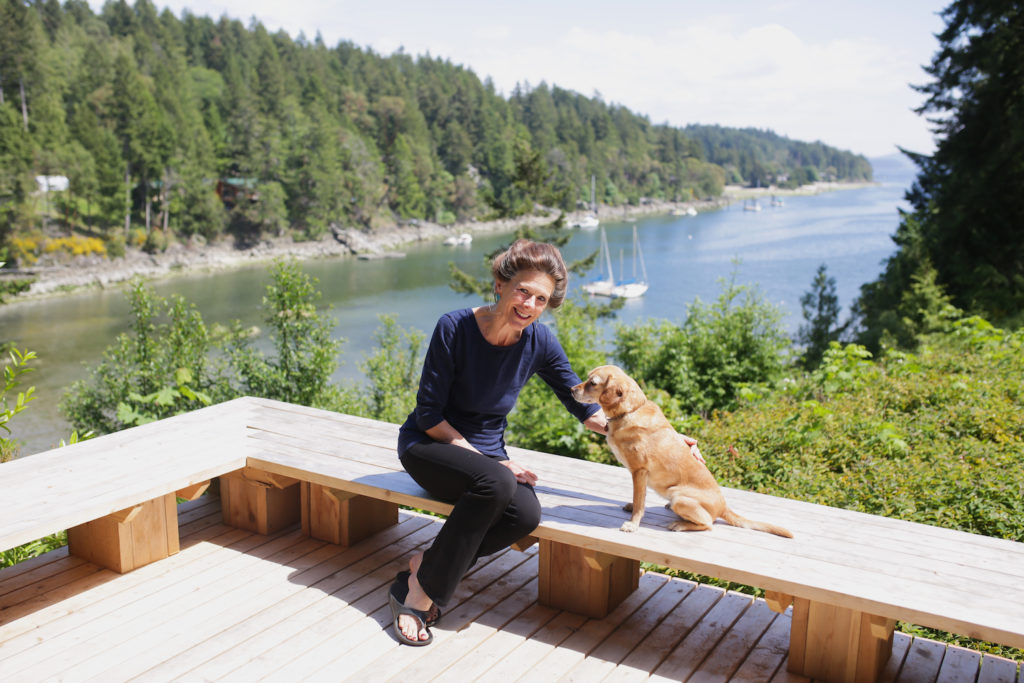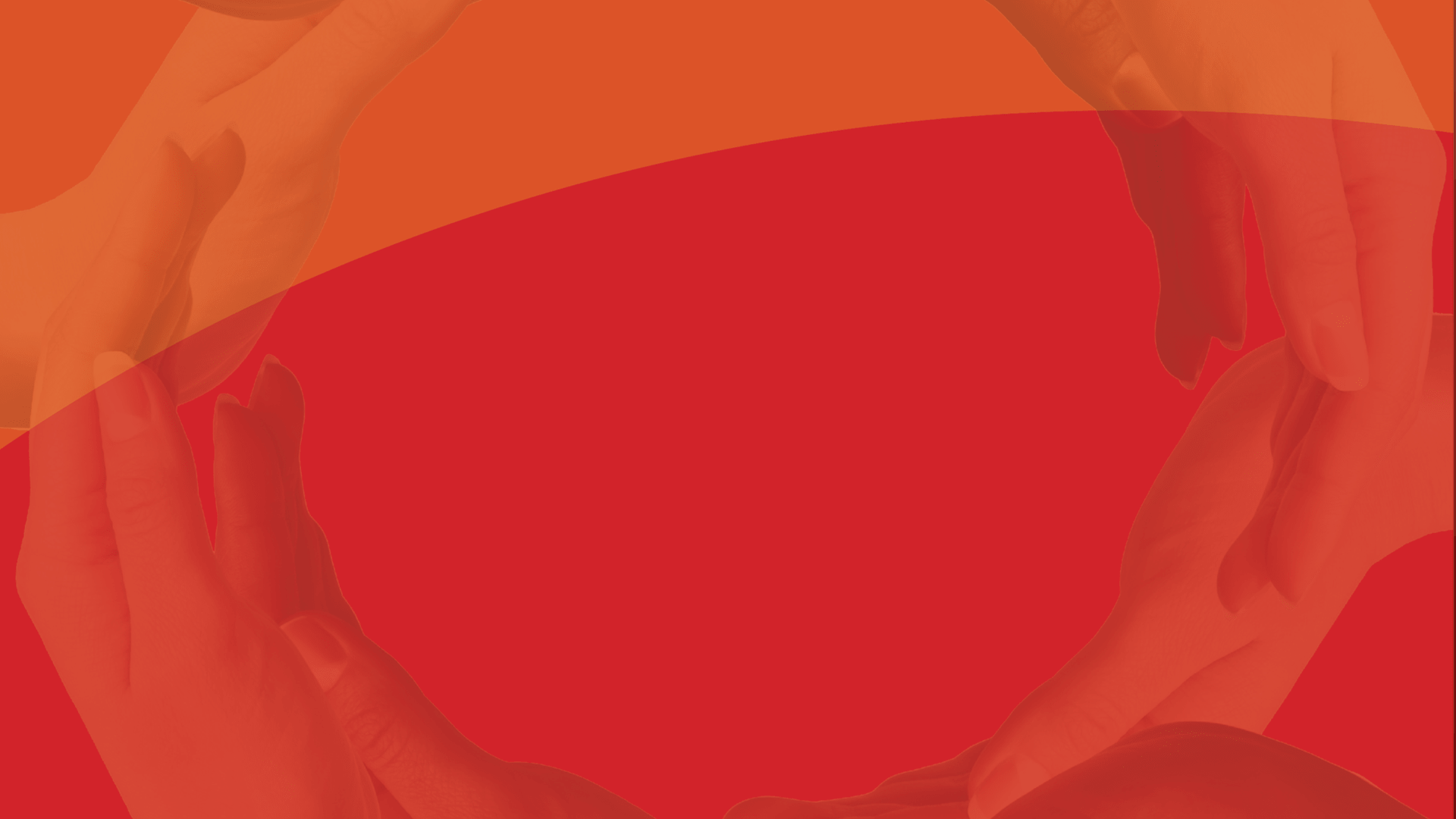03 Dec Interview With Caffyn – How We Practice
In the new and expanding profession of Somatic Sex Education, there are so many ways to practice and each of us brings our own unique gifts and perspective to the profession. Recently I had the pleasure of sitting down with Caffyn Jesse, one of the profession’s most gifted and learned educators to learn more about her approach to the work.

Tracy: What do you love about your somatic sex education practice?
Caffyn: I love connecting with other human souls outside of the kind of ordinary cultural scripts that are all about normative belonging – to really connect with other humans, supporting them in feeling more themselves, and in finding their own knowingness. I love to feel their energy and excitement for life, to feel their courage, to see them let go of ways of being that haven’t served them or feel too small for them, and to reach for the more they are longing for. I see it again and again with clients and students. Everybody is so different. I love each person I work with, seeing their magnificence and seeing them flourish.
The trauma we experience or the social norms that we feel boxed in by or wounded by or shunned by – all that can be compost for the growth and care of our wellbeing, individually and in community.
Tracy: I really like that analogy of compost- what we do as somatic sex educators is validate where people are. We see them and let them know “You’re great where you are, and it’s great that you’re here, and you have a longing to go somewhere else, that’s great too.” How delicious it is that we get support people on that journey.
Caffyn: Yes, it’s nothing that we can imagine; it’s so different for each person. We can support them and see them and help them see that things that they thought destroyed or diminished them are part of the food that they grow in.
Tracy: Beautiful, thank you. You’ve been working in somatic sex education for many years now. What are you most proud of in your career?
Caffyn: The quality of people who come to study in programs that I teach. I am so astonished and thrilled and I learn so much from them. They are people of such expansiveness and are so exciting to me. I’m in a place now where my students are bringing to me the teaching that I need to go forward with my own longing. People come from all over and somehow find my programs and it’s – wow! Not so much something to be proud of but rather to be astonished by.
Tracy: I think it comes back to seeing and connecting with each person, and learning from each student. The evolution of ourselves as practitioners.
Caffyn: Yes, there is so much to learn in our profession, it never stops.
Tracy: So true, that’s part of the excitement and the challenge of the work. What else about your work is challenging? And of course it might be different now than when you first began.
Caffyn: Not challenged in a bad way, but more in a “Here’s a Mount Everest to climb’ sort of way. Being a person in non-ordinary work and in non-ordinary relationship with the dominant culture, it’s the challenge of belonging and explaining my life work to people in my community. I live in a super small community and I’m in a bit of a fish bowl, so it’s about feeling up to meeting that social challenge.
Tracy: And has that evolved for you over the course of your career? You’ve been working on Salt Spring Island for a while now and many people must know what you do up there in your house by the sea.
Caffyn: I practice my own self-confidence, which has grown with the more books I publish and the more vocabulary I have for explaining the work. The community I live in has a lot of curiosity, and people doing lots of different things, so I have always found support here, and that people are willing to be interested.
Like I say to my students, part of doing this work is making room in the world for this work. I really took that part of the work on; I’ve produced a lot of words and videos about it and tried to make space for the work in the world, and in my own community. I’ve taught in the schools here. The local Unitarian church asked me to do a talk on sex and spirit. I offer different events as well, so I’m accessible. I feel like there is a place for me but there is also an ongoing navigation about doing something that is outside the box. Talking about sex can trigger fear in a lot of folks. It’s part of my social reality, finding my tribe and my places of belonging in the world.
Tracy: Yes, we need to feel enough safety and confidence that we can put ourselves out in the world, and for me too, finding the vocabulary to talk about somatic sex education is an important part of the work. How else have you and your practice evolved?
Caffyn: When I first started I thought I would only work with women, but soon found that I actually liked working with all genders, and that the way I was thinking about gender, separating men and women wasn’t really true for myself or others. I opened my practice to whoever showed up, and I loved the diversity of humans that showed up. I did a lot of one on one work when I first started and most of my work involved touch. At the time the training didn’t include a lot of the other pieces that I’ve brought to the work.
I created rituals that would involve touch, choice and voice, and healing sex, developing them as I learned what people needed. I started to attract more people who were explicitly interested in healing from sexual trauma, so that became a real focus. I started to do residential retreats which I really like as a way of working with people. I live in this more isolated place so people can come from quite far away and work with me for a couple of hours each day. As I got more confident, I started offering more workshops, and developed programs, bringing together some of the practices that I had learned and developed and weaving them together. In the Intimacy Educator program, I work with a sense of the soul’s journey and what we find in the Erotic Temple, and how we can bring gifts from the extraordinary experiences and relationships we find there back to the ordinary world. People can meet one another in that space, and experience transformation. That’s one of my favourite programs to teach.

Then I got involved in teaching the sexological bodywork program and that became a focus. That training has been integrated in what we now call somatic sex education, where we are bringing in a lot of new curriculum – including trauma awareness, empowering choice and voice, neurobiology and anatomy. I’ve been very devoted to writing and teaching it, so I’m not working with individual clients right now, but I am looking forward to going back into my individual practice, teaching my intimacy educator training, and welcoming back past students to teach in my studio so I can learn from them.
Tracy: Beautiful, these lovely waves of evolution. My practice has evolved by who shows up at my door. Someone arrives wanting something new and so I learn more about it with them, and then more people come with the same focus.
Caffyn: Yes, that is true for me too. In the early days I’d do a little intake and then I’d be reading and researching and creating lesson plans and learning what I needed to support that student. Eventually I had enough background that I didn’t have to do that kind of intense studying for each person, but still, each student calls me to some new learning. There’s no end to learning in this field.
Tracy: It’s all about desire, and there’s no end to desire, right? That’s life, if we’re not longing or wanting things we’re not learning and growing. Each client teaches me something new and calls something different from me.
Caffyn: Once you find the world of sex, there is no end to the learning, there are so many branches, so many aspects – science, interpersonal relationships, anatomy, neurobiology, ritual, history, weaving in the social justice pieces, and feeling into the new relational world where we’re committed to undoing oppressions and binaries…. there’s just so much richness.
Tracy: And even within one aspect, there are so many different approaches. Each student brings their own personal take on things, with new words and a new perspective, it’s always expanding.
What about for folks who are considering coming into the profession? What would you want future students to know?
Caffyn: Good question Tracy, what do you wish you knew?
Tracy: I think the idea that everyone is different and there is so much room for everyone to bring their gifts and their unique perspective to the work. That there is no one right way.
Caffyn: One thing I notice is that as people come into the work, they’re beginning something, and they need that beginner’s mind every day and with every client. But along with that beginner’s mind, everything they have behind them is there for them in the work. They are already so resourced with all of their knowingness and life experience, and I think they start to see it and feel it as they come through the program. It’s new, yes, but it’s not like starting from scratch, they’re starting with everything they bring to the work. Experiences in unrelated fields and experiences of not being keyed into your sexual body are places rich with learning and knowingness.
I hope for us as a profession, as we become more accepted, and there is more weaving in with other health care modalities, that we don’t lose the idea that this is about care of the soul and care of the soil. This is a non-normative practice; it requires an undoing of the dominant culture. I hope we stay tuned into and in integrity with that, even as we become more socially acceptable and part of the picture of what health and wellness are all about.
As somatic sex education becomes more accepted by the dominant culture, we need remain true to ourselves, each person in tune with what is true for them rather than being told what’s true for them.
May we keep honing our own integrity and community of belonging so we feel resourced enough to create this new culture that is required for people to feel free and whole.
Tracy. Yes, may it be so.

Caffyn lives and works on Salt Spring Island, and teaches around the world. As well as teaching the Somatic Sex Educator training, and offering an Intimacy Educator program twice a year, they offer professional mentoring, host retreats for teachers, and offer many other resources for educators. Learn more at www.erospirt.ca
Tracy is a lover, dreamer, student, teacher, somatic sex educator, sexological bodyworker and the Creative Admin for the ISSS. She lives and plays in Ottawa, ON.



